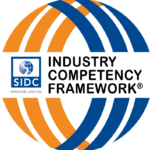Programme Overview
Asset and Funds Management is a 2-day programme designed to provide insights into fundamental aspects of investment such as fund management, financial planning, portfolio management, asset classes and allocation, portfolio theory, risk and return, investment strategies and performance measurement.
Programme Objective
This programme is designed as a refresher course for CMSRLs or ERPs who would like to refresh themselves in Asset and Funds Management. Apart from this, the programme also serves to support those preparing to sit for the Securities Commission Licensing Examination (SCLE) Module 10 on Asset and Funds Management. It’s highly recommended that participants put in a minimum of 120 self-study hours using study aids such as SCLE Module10 e-guide, practice set questions, reading list and latest market updates for maximum benefit and reinforced learning.
Learning Outcomes
Upon completion of this programme, participants should be able to:
- Recognise the range of investment concepts which are critical to any fund manager
- Identify the financial planning approach necessary to meet client objectives
- Explain the portfolio management process used by institutional investors
- Identify major asset classes and their characteristics
- Explain the asset allocation decisions
- Describe the basic portfolio theory principles
- Analyse the strategies available to manage equities portfolios, debt portfolios, derivatives, alternative investments, portfolios of international assets and Islamic investments
- Define the concept of risk management and the trade-off between risk and return
- Explain the principles of performance measurement and evaluation of fund managers
- Discuss the psychology of investing to improve investment decision-making
Programme Methodology
This programme will be delivered using effective learning methods including presentations, discussions and Q&A.
Target Audience
Capital Markets Services Representative’s License (CMSRL) holder and Employee of Registered Person (ERP) who would like to refresh themselves in asset and funds management.
Competencies
 |
|
PROGRAMME – DAY ONE
| 9.00 am | The Fund Management Industry in Malaysia
The Investment Setting
|
| 10.30 am | Break |
| 10.45 am | Life-cycle Investing and Investment Structure
Asset Allocation
|
| 12.30 pm | Lunch Break |
| 2.00 pm | Modern Portfolio Theory (MPT)
|
| 3.30 pm | Break |
| 3.45 pm | Managing an Equity Portfolio
Managing a Fixed Income Portfolio
|
| 6.00 pm | End of Day One |
PROGRAMME – DAY TWO
| 9.00 am | Derivatives in Portfolio Management
|
| 10.30 am | Break |
| 10.40 am | Managing Alternative Investments
Managing International Investments
|
| 12.30 pm | Lunch Break |
| 2.00 pm | Understanding Islamic Investments
Portfolio Risk Management
|
| 3.30 pm | Break |
| 3.45 pm | Performance Measurement and Presentation of Returns
Investment Psychology
|
| 6.00 pm | End of Programme |
Recommended for you
Securities Commission Licensing Examination AM
10:00:00 AM - 11:30:00 AM
Online Remote Proctoring
Securities Commission Licensing Examination AM
10:00:00 AM - 11:30:00 AM
Online Remote Proctoring
Securities Commission Licensing Examination PM
02:30:00 PM - 05:00:00 PM
Online Remote Proctoring
Securities Commission Licensing Examination PM
02:30:00 PM - 05:00:00 PM
Online Remote Proctoring
Securities Commission Licensing Examination AM
10:00:00 AM - 11:30:00 AM
Online Remote Proctoring
Securities Commission Licensing Examination AM
10:00:00 AM - 11:30:00 AM
Online Remote Proctoring







